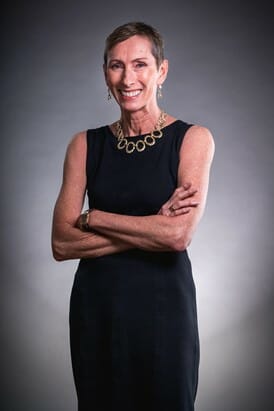More women in the UAE are enrolling in STEM (Science, Technology, Engineering, and Mathematics) courses and entry-level professional certificates, according to a new study by Coursera, one of the largest online learning platforms in the world.
The share of overall course enrollments by women increased from 38 percent in 2019 to 42 percent in 2021.
Also, in the case of the STEM courses, the gender gap narrowed from a share of 32 percent of enrollments from women in 2019 to 37 percent in 2021.
Women’s enrollment in entry-level Professional Certificates has also gone up in the country from 26 percent in 2019 to 32 percent in 2021.
Furthermore, the UAE women show a strong inclination towards business leadership. The skills the UAE women have developed over the last year include communication (110,000 enrollments from the UAE women), leadership and management (100,000), and entrepreneurship (80,000).
The report showed that UAE women are also investing in STEM skills, like probability and statistics (70,000), data analysis (60,000), and machine learning (50,000).

Betty Vandenbosch, Chief Content Officer at Coursera, told TRENDS in an exclusive interview from the United States that women come to online learning because it is the only way they can learn at home while doing other things.
“It’s exciting to see women learning STEM across the globe, as well as in the UAE and Saudi Arabia, and throughout the Arab world,” Vandenbosch said adding the women can obtain the new skills they need to enter high-demand roles and achieve improved gender balance in the workforce if they have access to flexible, job-relevant education.
“I earned my computer science degree with only a handful of women alongside me, and while much has improved since then, we still have important work to do in terms of increasing women’s representation in technology and leadership”, she said.
Higher Rates
The trend among the UAE women to take online education has been accentuated by the pandemic.The UAE has 220,000 registered women learners on Coursera. In 2020, a peak of 47 percent of new registered UAE learners were women. While this share is at 44 percent in 2021, it still represents an increase from 42 percent in 2019.
According to Vandenbosch, the average age of women enrolling in STEM courses worldwide is in their mid-30s. In Saudi Arabia, the average age is 30, while men’s average age is 34, and in the United Arab Emirates, women are 32 and men are 34. As a result, women are slightly younger than men. There are 220,000 female students in the UAE and 180,000 in Saudi Arabia, indicating that many women are seeking online education.
Vandenbosch added that women are searching for something digital and have a bright future in the new labor market, so that’s why they’re looking for STEM classes the most.
“Women are resilient, innovative, and this is an example of how they are enrolling in these courses in much higher numbers where they see a future in new careers,” she said.
Vandenbosch pointed out that women learning from women makes a significant difference. 49 percent of enrollments from women learners are in courses with women instructors, compared to 38 percent for men learners. “As we can see, women are increasingly taking courses taught by women, and we at Coursera are fortunate to have so many major courses taught by women”.
Furthermore, when a woman learns STEM, she tells her friends, and her friends then to take STEM courses, and so on. So, in this way, the number of women taking these courses is rising more and more, which will impact closing the gender gap in this profession in the future.”







